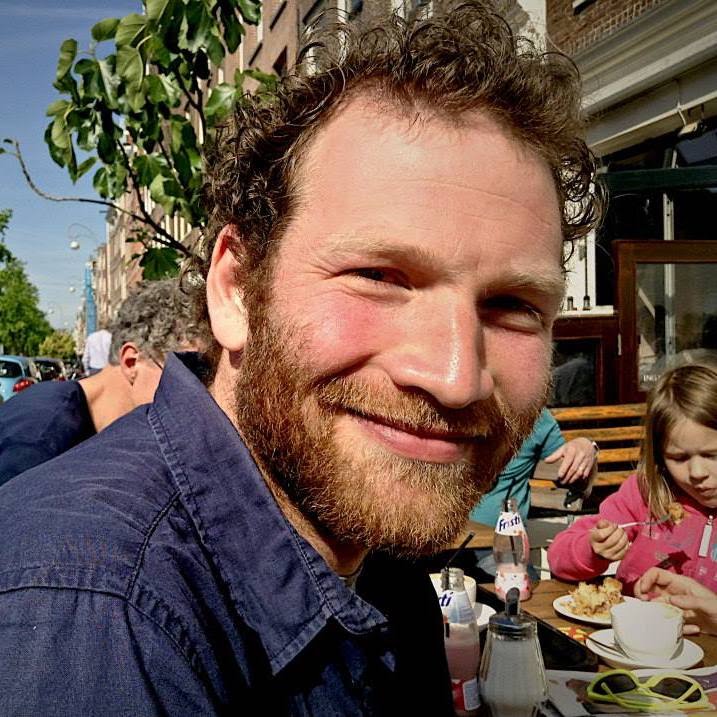
Logic and Conversation: Fall 2017
• Amsterdam • Master of Logic, University of Amsterdam
Traditionally, logic is concerned with the characterization of valid reasoning and argumentation, and therefore identifies the meaning of a sentence with its truth conditions. When analyzing the meaning of sentences in conversation, however, other notions become of interest as well. The focus of the course will be on inquisitive semantics and dynamic semantics, which both enrich the traditional truth-conditional picture in ways that allow for a more comprehensive logical analysis of the meaning of sentences in linguistic interaction. We will also explore some ways of combining inquisitive and dynamic semantics, an area of current research.



Prerequisites
Good working knowledge of first-order logic is required, and some background in formal semantics is convenient, though not really necessary. For students of the Master of Logic, it is usually best to take this course in your second year (although there may be exceptions of course, depending on your specific background).
Background reading
If you are not familiar with lambda calculus or discourse representation theory, you should check Gamut (pp. 102-117 for lambda calculus; pp. 264-299 for discourse representation theory). The book also has detailed discussion on Montague grammar (pp. 139-222). The book is available here.
Lecture notes
There are lecture notes for the first part of the course. The current version of the lecture notes can be downloaded here.
Grading
The grade will be based on three homework assignments (each counting for 15%) and a final paper (55%).
Assignments
- A latex template for drawing inquisitive semantics diagrams can be downloaded here.
- Assignment 1 can be downloaded here. Due on Wednesday 20/9 (midnight).
- Assignment 2 can be downloaded here. Due on Wednesday 4/10 (midnight).
- Assignment 3 can be downloaded here. Due on Wednesday 18/10 (midnight).
Instructions for final paper
The final paper can be written either in groups of 2-3 students or individually. We strongly encourage working in groups, but if someone already has a particular topic that they want to work on and cannot find others interested in this topic, then working individually is permitted. Students are encouraged to discuss possible topics with us early on in the course. Topics and groups should be determined by October 10 at the latest. A preliminary version is to be presented during the last lecture, October 20, and the final version is due after the exam week, on October 30 (midnight). See Appendix B of the lecture notes for pointers to some relevant literature, which may help in finding an interesting topic.
Grading criteria for final paper
The criteria are the same as for a master thesis, though of course here we do not expect as much as in the case of a thesis.
- Correctness All claims should be correct, precisely formulated and carefully argued for.
- Writing The paper should be well-structured; the writing should be clear and concise. Typically, papers are around 10 pages. There is no official upper or lower bound, but quality is preferred over quantity: a single idea or result that is clearly explained in 7 pages is better than a collection of multiple half-baked ideas discussed in 15 pages.
- Difficulty Both conceptual and technical difficulty are taken into account.
- Originality The paper should contain some new results. This can take many forms: establishing previously unknown properties of one of the logics discussed in class, or closely related ones; further enriching the theories discussed; developing new applications; developing a theory of your own that solves some of the remaining challenges for the theories discussed.
Late policy
The deadline is intended to be strict. Late submissions will be accepted until three days after the deadline, but 0.5 points will be substracted from the grade per day.
Schedule
Tuesdays 15.00-17.00 (B0.203; except on 12/9 it’s in B0.206), Fridays 13.00-15.00 (B0.204)
| Lecture | Date | Material | Content | Lecturer |
|---|---|---|---|---|
| Inquisitive semantics | ||||
| 1 | 5/9 | LN chapter 1 | Motivation | Floris |
| 2 | LN chapter 2 | Basic notions | Thom | |
| 3 | LN chapter 3 | Operations on propositions (room B0.206) | Floris | |
| 4 | LN chapter 4 | First-order inquisitive semantics | Floris | |
| 5 | LN chapter 5-6 | Question semantics | Thom | |
| 6 | LN chapter 8 | Propositional attitudes: inquisitive epistemic logic | Floris | |
| 7 | LN chapter 9 | Comparison with other frameworks | Floris | |
| Dynamic semantics | ||||
| 8 | 29/9 | Haida ch. 2&3 | Dynamic semantics with questions | Jakub |
| 9 | Muskens 1996 |
Compositional dynamic semantics |
Jakub | |
| 10 | Haida ch. 4 |
Compositional dynamic semantics with questions |
Jakub | |
| 11 | Haida ch. 5, AnderBois 2012 |
Indefinite-interrogative affinity, focus |
Jakub | |
| 12 | Haida ch. 6 | Application of dynamic semantics to questions |
Jakub | |
| 13 | Dotlacil & Roelofsen 2017 |
First sketch of inquisitive dynamic semantics |
Jakub | |
| 14 | 20/10 | Project presentations | ||